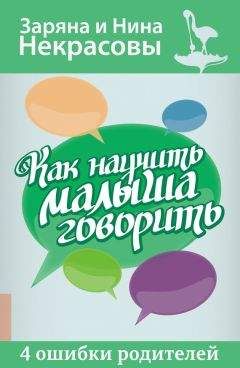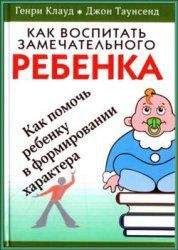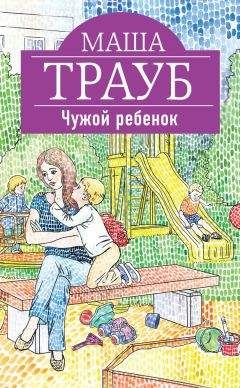Leo Frankowski - CONRADS QUEST FOR RUBBER
Thrown at close range or carried at a run, that thing could punch right through our armor, and then right through the man who wore it, just about anywhere they put it. Once they had one of those spears in a man, they would jerk the spearsideways, and a little hole on the outside left a big, deep slash inside.
Had they just charged at us straight off, they could have killed most of us before we even knew there was a battle going on.
Even then, I was slow on the uptake, I am ashamed to say, because at first I had a hard time throwing away all that gold. I mean, here in my arms I had more money than my father could have made in twenty lifetimes of hard work, and while it was probably only a few moments before I threw it down and pulled my axe from its sheath, those were some long and important moments.
They came at us on foot, jumping down from the bluff, breaking their fall on the sloping sand and smashing into us. I had my axe out in time, but I didn't have a chance to swing it before this smelly individual knocked me over and ended up on top of me. He couldn't use his sword any more than I could use my axe, and he thought of his knife before I did.
I felt his knife hit my left side and bounce off my armor twice before I got my own knife out and did unto him as he was trying real hard to do unto me. He had armor, but it wasn't nearly as good as the stuff Lord Conrad's factories make. I had to stick him four times before he gave up and died.
I threw his body off me and tried to stand up, but before I was upright, some other Mongol ran into me and sent me skidding across a patch of ice and into the muddy water by the river.
What with the goose-down padding we wore under the armor, I hadn't much noticed the cold up until then, but when the water seeped in, it was ungodly cold. The Mongol next to me noticed it, too, or maybe he was just afraid of drowning, but he lost interest in me and tried to get back on dry land.
That was his big mistake, because I still had my knife in my hand. Still on my back, I caught him in the back of the knee, and he went down. I crawled over and got him in the neck before I stood again, picked up somebody's axe, and looked around, trying to figure out where I could be of the most use.
The gunners were blazing away, shooting those Mongols who were still on top of the bluff or just starting down, but they were afraid of shooting those in our midst for fear of killing their own men.
Down below we were outnumbered maybe two to one, and the Mongols, a whole lot more agile than we were, were swarming all over us. Our troops looked like clumsy bears being attacked by a fast and deadly pack of wolves.
It was our armor, you see, that made us slow and half blind.
It also made us almost indestructible, and I saw men take a dozen hits and keep on fighting as if they didn't notice them. In one case, I'm sure he didn't.
Taurus was swinging his axe like a madman, screaming insanely, running at the enemy and chopping down everything in front of him. I think he was seeing every Mongol as one of those who killed his family, and he was laughing at every throat he cut, every skull he smashed.
He certainly didn't need or want any help, and I had the idea that it wouldn't be safe to stand next to him; he might not know friend from foe until after the battle was over.
Some of the old fireside stories told of the times the Vikings invaded Poland and how they all got killed for their trouble.
One kind of Viking was called a berserker, men who went absolutely crazy during a battle. Looking at Taurus, I couldn't help thinking he must have some of that berserker blood in his veins. It was possible, because hundreds of years ago the Ukrainians had lost to the Vikings instead of killing them all, as we Poles did.
A Mongol in baggy pants singled me out, shouted some war cry, and ran at me with one of those deadly spears. Luck was still with me, for he slipped on the muddy ice and landed facedown at my feet. I chopped down, catching him in the middle of the back, between the shoulders, and he stopped moving. I looked back out at the fight.
A dozen of our men had formed up in a circle. They didn't seem to need help, and anyway, getting in there through the crowd of Mongols surrounding them looked impossible.
Then I spotted Captain Targ and Lord Conrad struggling in the mud, trying to get up while a dozen Mongols were trying to put them down. I was needed.
The tactics they taught us at the Warrior's School said that fighting fair is fighting stupid. If you do not kill the enemy as fast as possible, he will kill you instead, and your mother told you to come home alive. Fighting to win always seemed very sensible to me, despite all the glorious fireside stories I had heard about knightly honor, valor, and courtesy.
I killed three of the enemy surrounding my leaders by chopping them in the back before they knew I was there. Then suddenly, entirely too many of them noticed me, and it was my turn to need help. It came in the form of Fritz and Zbigniew.
Soon we were fighting on top of the dead, or nearly dead, bodies of the slain, and we were getting the upper hand. Those of the enemy who were still alive were falling back, or at least had become less aggressive about attacking us.
Then another band of Mongols came toward us, riding on horseback along the riverbank. With pikes, we could have taken care of them easily, but our pikes were stored in our war carts, back in the boat! Faced with fighting horsemen with only peasant axes, well, I was grateful when Captain Targ called for a retreat!
We made it back on the boat in good order, taking with us our wounded and our dead, more of both than I thought we had lost when I was fighting.
Even Taurus made it back, I think because he got turned around in the fight and found Mongols between himself and the boat. He didn't hurt any of us, but only because two men ran away and one man threw himself flat on the ground when they saw him coming.
Sir Odon had to hit him and take the axe from his hands before the captain allowed him on board. At least Taurus hadn't stripped himself naked, the way they say the Viking berserkers did.
The next-to-the-last man in was Lord Conrad, and I saw that he had an arrow in his eyeslit. I helped him up to the surgery and gently took his helmet off.
"Have I lost it?" he said, referring to his right eye.
I told him the arrow had missed the eyeball, so it was likely he would see with it again, but the arrow had stuck in the bone to the right of it, and there would probably be a scar. Still, he had been lucky.
"I would have been a damn sight luckier if the arrow had missed!"
I had to agree to the truth of that statement.
"Well, open that surgeon's kit! Get the arrowhead out, clean the wound, and sew it up! Didn't they teach you anything in medic's school?"
I tried to explain that I wasn't qualified, that I had never sewn up an eye before, that in fact I had never sewn up anything but some small dead animals in training, but it seemed he was adamant about me doing the job, and doing it immediately! I looked desperately around for help, but both of the surgeons were working on men who were far more seriously wounded than Lord Conrad. High rank has its privileges in most places, but not in an army surgery.
"Well, boy, now's your chance to learn! First, wash your hands in white lightning, and then wash around the wound as best you can."
What could I do? I had been given a direct order by a very superior officer! I had no choice but to obey.
When I finished with the washing, he said, "You got that done? Then get the pliers out of your kit and pull the arrowhead out. Better get somebody to hold my head. It will hurt, and I might flinch."
I could not believe that the greatest hero in all of Poland would ever flinch and tried to say so, but he shouted me down.
"I said get somebody to hold my head and stop acting like I'm God! That's an order!"
Shocked, I agreed that he was not God and called Lezek over to hold his head still.
"Now the pliers," he said.
The pain must have been horrible, for while he did not cry out, he did pass out for a few moments. When he came to, I told him it was out, and showed him the bloody arrowhead.
"Good. Throw it away. That kind of souvenir I don't need. Now get a pair of tweezers and feel around in the wound for any bits of broken bone or any foreign matter."
I thought of keeping that Mongol arrowhead myself, as a conversation piece, but orders were orders, and I gave it a toss. I found the tweezers and went to work. This time he cried out, although he did not pass out. I felt around in there as gently as I could, and found a few small bits of broken bone, which I removed. Then I told him I was done.
"Thank God! Now clean it all out again with white lightning. Pour it right in."
I still felt awkward about all of this, but what could I do but follow orders?
"Okay. Now get your sterile needle and thread and sew it up. Use nice neat little stitches, because if my wife doesn't like the job you do, she will make your life not worth living. Believe me. I know the woman."
I had heard tales of Lord Conrad's lady, and I had no desire to be her enemy. I carefully made nine neat little stitches, and when I was done, you could hardly see where the cut was. Then I bandaged him up, wrapping the clean gauze around his head and then under his jaw to keep it in place.
He sat up and said, "Well. Good job, I hope. Thank you, but now you better get around to the other men who were wounded."
I looked around and told him that it wasn't necessary, the surgeons had already taken care of everybody.
"The surgeons!" he yelled. "Then what the hell are you?"
I told him I was in the fifth lance, an assistant corpsman.
"Then what the hell were you doing operating on my head?"
I tried to explain that he had ordered me to do all that I had done. That I had been given a direct order by my commanding officer. What else could I have done but obey him?
"Then what were you doing with that surgeon's kit?"
So I explained how they had had these extra kits at the warehouse, and how they handed them out to some of the fifth lancers, just in case we needed them.
"They just handed it to you?"
I said yes, and thanked him for showing me what one should do with many of the things in the kit. It had reminded me of my boyhood at Okoitz, when Sir Conrad always seemed to have time to explain things to us.
But he just turned away from me with a look of exasperation on his face. I thought about the way Sir Conrad had always had a lot less patience with adults than he had with children, and I supposed that I was finally growing up.
Nonetheless, 1 beat a hasty retreat down to the lower deck.
Lezek followed me, giggling.
Chapter Five
From the Journal of Josip Sobieski
WRITTEN JANUARY 21, 1249, CONCERNING FEBRUARY 26, 1241
WE GOT back to East Gate every second or third day, to load up on more coal, food, and ammunition, and to put ashore our dead and our seriously wounded.
The fighting was getting grim. The Mongols were becoming a lot less stupid than they had been, and we were starting to take serious losses.
The Mongols killed their first riverboat by luring it close to shore, and then felling a tall pine tree on it. They swarmed over the tree and eventually killed everyone in the crew. They were learning how to use the guns when Lord Conrad had another boat set the captured boat on fire with its flamethrower.
Their engineers all seemed to have black hair, yellowish skin, and funny-looking eyes. Lord Conrad said they were Chinese, from a place called China on the other side of the world.
They started setting up a sort of Mongol catapult. The things had a long arm with a big rock at one end and maybe two gross of their men pulling ropes on the other. They worked a lot better than you'd think, throwing rocks weighing over a ton for hundreds of yards.
One day when I was resting down on the cargo deck, a rock came through the fighting top, through two bunk beds in the officers' quarters, through the second floor, through our war cart not a yard from where I was lying down on top of it, through the cargo deck floor, and down through the bottom of the boat a yard below that!
I'd made the mistake of removing my armor before lying down to rest, so I got sprayed with about two dozen big splinters. I was never in danger of dying, but it took the surgeons over an hour to patch me up. And it hurt.
Lord Conrad got the bottom fixed before we sank, but just when he was done, another rock came all the way down through the boat not three yards from where the first one hit!
I tell you, warfare was starting to get dangerous!
We managed to keep our boat afloat, but had we caught a rock in the boilers, or on the paddle wheel the way some boats did, we would have been wrecked just like so many of the others.
Usually, the boatmaster could get his boat on the west bank before the thing sank, or sometimes another boat was near enough to be able to help out, so most of the men were saved. Most, but by no means all.
Sir Odon said it was possible to swim in armor, and he had done it himself, but he didn't think that a man could last long in the freezing water of February. It didn't make much difference to me one way or the other, since I had never learned to swim.
We got to avoiding those catapults, except where they started building a bridge in front of a bunch of them. As long as we could keep the Mongols on the east side of the Vistula, we knew eventually we would beat them. We didn't dare let them across, so we didn't dare let them get a bridge built.
Then the Mongols came up with their best idea yet, only maybe I should call it their worst one. They got whole cowhides, sewed them back together, and filled them with oil and lard. They lit them on fire and threw them at us with their catapults. When they hit a boat, it usually burned to the waterline. We lost more than half of all our boats to those firebombs, and all too often their crews were burned up with them.
In front of Sandomierz, where the enemy tried again and again to build a bridge, I saw six riverboats get hit by those oil bags and burn right down to nothing. Each of them had over two gross of our men on them, and only one of the six was able to beach itself on the western shore. You had to cry, looking at it.
Then, as suddenly as the firebombs started, they stopped. The best anybody could figure out, the Mongols must have just run out of oil and lard.
We were running out of almost everything, too.
Finally, there came a time when there were only about a dozen or so riverboats left on the Vistula.
We were out of the wood alcohol and pine resin stuff they used in the flamethrowers, out of bombs for the Halmans, out of iron balls for the peashooters, and almost out of ammunition for the swivel guns. We had even run out of Mongol arrows to shoot back at them.
Almost everybody on board had at least one wound, and out of my company we had more than six dozen men gone, either dead or wounded so bad they couldn't possibly fight.



